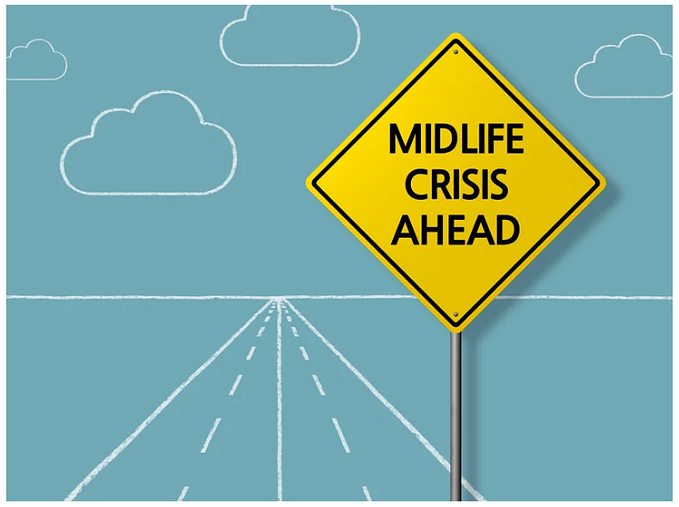A Brief Guide to Developing a Creativity Habit
Six concrete practices for becoming more consistently creative

There is a lot of frantic activity and frenetic energy these days. Finding the time, space, and energy to be creative feels harder than ever. Distraction and novelty and endless bight-and-shiny objects encroach upon our attention always. You are constantly being pushed and pulled by the whims of life. How to create, let alone consistently?
This is a question I’ve taken on in my work over the last few years. I’ve scoured the latest scientific evidence, teachings of ancient wisdom, and what actually works in modern practice, when the rubber meets the road. Here, adapted from my new book The Practice of Groundedness, are six practices that can help you turn creativity into a habit in your own life.
Start where you are
See clearly, accept, and start where you are. Not where you want to be. Not where you think you should be. Not where others think you should be. But where you are. You can’t work on something in a meaningful way if you refuse to accept that the thing is happening to begin with. You don’t have to like what is happening, but you have to accept it.
Many creatives fall into the trap of wishing they had this deal or that deal, that they got their work accepted by this publication or that one. As a result, they tend to engage in a lot of wishful thinking. This wishful thinking often gets in the way of the creative work itself. Acceptance means focusing on the work, even if you don’t already have commercial success lined up. After all, there is no commercial success without doing the butt-in-the-char work. If you are struggling to get started, remember: you don’t need to feel good to get going; you need to get going to give yourself a chance at feeling good.
Own your energy and attention
Be present, both physically and mentally, for what is in front of you. Spend more time fully in this life, not in thoughts about the past or future. Distraction is tempting — perhaps for some, even addicting — but the research is clear: creativity emerges from full engagement in what you are doing.
Creative people out there, take note: do not rely on your willpower to overcome distraction. Schedule time to do your work deep-focused work, and during that time, keep your phone in another room, close your internet browser, turn off your email client, and so on. If that’s not enough, consider buying a cheap computer with no internet connection, and use it only for your creative work. (I wrote my first book this way.)
Go slow to go fast
Give things time and space to unfold. Do not try to escape life by moving at warp speed. Do not expect instant results and then quit when they don’t occur. Realizing that we often do things quickly — not better, but quickly — to gain time. But what is the point if in the time we gain we just do more things quickly? I have yet to meet someone who wants their headstone to read “They rushed.”
Let the process unfold. This often means stopping a bit short today so you can pick up in a good rhythm tomorrow. Earnest Hemingway was known for forcing — that’s right, forcing — himself to stop working when he was still in a groove so he could resume from that place the next morning. There is nothing wrong with a marathon session; but don’t make it a habit. Consistency compounds. Small steps taken every day compound into something big.
Be vulnerable
Be real with yourself and with others, at work and in life. Eliminate cognitive dissonance, the inner turmoil and distress that arises when too much of your outward life is performative, when there is too wide a gap between what the sociologist Erving Goffman called your “front stage” and “back stage” selves. Give it your all, even if doing so is scary.
Don’t be scared to take big swings and to put your heart on the page. Creative work that feels most vulnerable is also creative work that resonates most with other people. Why? Because everyone is going through something always. What feels unique to you rarely is. Research shows the more vulnerable you are, the more connected to other people you become. I think this is true for creative work, too.
Build community
Nurture genuine connection and belonging. Build supportive spaces in which individuals can hold each other through ups and downs. Prioritize not just productivity, but people too. Remember that on your deathbed you are less likely to harp on the best-seller or any other outward achievement and more likely to savor the bonds and relationships you forged along the way.
The best way to get better at any kind of creative craft is to surround yourself wisely. Connect with other creatives. Share you work. Brainstorm together. Be willing to give — and receive — feedback. Exhibit A: Both the title and the sub-title of The Practice of Groundedness both came from conversations with other writer friends.
Move your body
Regularly move your body so that you fully inhabit it, connect it to your mind, and as a result become more situated wherever you are. This doesn’t mean you have to be an athlete. It just means to make movement a part of your life, even if only in some small way.
Study after study shows that the single best way to enhance creativity is to move your body. I consider exercise a part of my job as a professional writer. At least 60 percent of my best ideas have come while on the trail. Even though it can feel like you are sacrificing precious writing time to exercise, it’s actually the opposite that is true. By moving your body, you are bolstering what you bring to the table during your precious creative time.
If you liked this story and want to learn more, check out The Practice of Groundedness: A Transformative Path to Success that Feeds — Not Crushes — Your Soul. I gave it my all and I’m confident it will help you.









